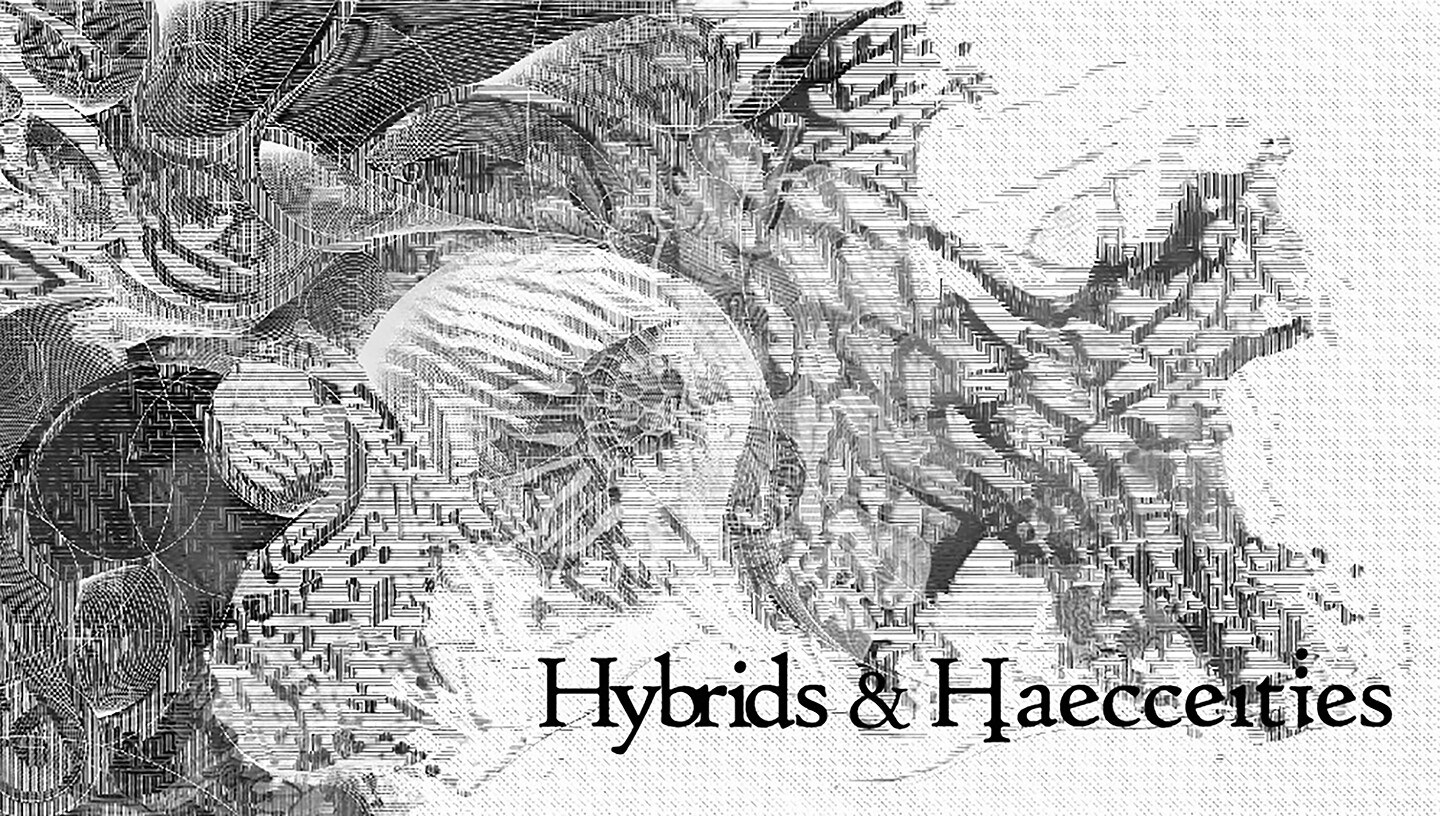A weeklong exploration of design beyond binaries and hierarchies
October 24–29, 2022
The 2022 annual conference of the Association for Computer Aided Design in Architecture (ACADIA) will take place in Philadelphia from October 24–29. Hosted by the Department of Architecture at the University of Pennsylvania Stuart Weitzman School of Design, the event features keynotes by recognized leaders in the field, talks by recipients of ACADIA’s annual awards program, exhibitions of both curated and peer-reviewed work, and peer-reviewed paper and project presentations of cutting-edge research showcasing the innovative application of computational practices in architecture and design.
The conference theme, “Hybrids & Haecceities,” seeks novel approaches to design and research that move beyond binary conditions and inherent hierarchies in order to embrace new modes of practice. Haecceities describe the qualities or properties of objects that define them as unique. Concurrently, Hybrids are entities with characteristics enhanced by the process of combining two or more elements with different properties. In concert, these terms offer a provocation toward more inclusive and specific forms of computational design.
The main sessions, scheduled for October 27–29, include topics from robotic fabrication and design to carbon-negative fabrication and design, machine learning and artificial intelligence to disruptive modes of practice and pedagogy, environmental performance and simulation to knitted architecture and biomaterials, and more. The full schedule is online at 2022.acadia.org.
Keynote speakers include J. Meejin Yoon, accepting on behalf of Howeler + Yoon, recipients of the ACADIA Design Excellence Award; and Antoine Picon, Harvard University. The prologue keynote panelists include Mette Ramsgaard Thomsen, Royal Danish Academy; Robert Stuart-Smith, University of Pennsylvania; Rashida Ng, University of Pennsylvania; Marcos Cruz, University College London/Bartlett; and Winka Dubbeldam, University of Pennsylvania and Archi-Tectonics. The epilogue panelists include Jenny Sabin, Cornell University; Hina Jamelle, University of Pennsylvania and Contemporary Architecture Practice (CAP); Ferda Kolatan, University of Pennsylvania and su11; Antoine Picon; and Andrew Kudless, University of Houston.
In addition to the conference proceedings, ACADIA 2022 features 14 pre-conference workshops both in person and online led by an international roster of emerging and established designers from October 24–26. Workshop topics range from designing with artificial intelligence to augmented digital workflows, from designing for culturally responsive environments to industrial robotic fabrication. Many of the in-person workshops are being held in Weitzman’s state-of-the art Robotics Lab. The full schedule is online at 2022.acadia.org.
Offering an international survey of built and unbuilt work, the exhibition A Mosaic of Unlikely Affinities takes on the larger questions raised by the conference theme and reflects on them through a kaleidoscopic assemblage of images depicting prototypes, artifacts, and buildings designed by Penn faculty members and their respective teams and practices. A concurrent ACADIA Project Exhibition showcases a double-peer-reviewed selection of 29 projects from over 100 submissions. Both exhibitions are featured in the accompanying Project Catalog.
One of America’s truly iconic cities, Philadelphia offers four centuries of architectural history, a multitude of public squares, parks, and neighborhood eateries (“BYOs,” in Philly parlance, where diners bring their own beer or wine), and more than 3,000 outdoor murals.
ACADIA was formed for the purpose of facilitating communication and critical thinking regarding the use of computers in architecture, planning and building science. The organization is committed to the research and development of computational methods that enhance design creativity, rather than simply production, and that aim at contributing to the construction of humane physical environments. A particular focus is education and the software, hardware and pedagogy involved in education.
Under the leadership of Miller Professor and Chair Winka Dubbeldam, the conference chairs are Penn faculty members Masoud Akbarzadeh, Dorit Aviv, Hina Jamelle, and Robert Stuart-Smith. The workshop chair is Andrew Saunders; the exhibition and media chairs, respectively, are Ferda Kolatan and Nate Hume.
Registration for both the conference and the workshops are still open, and tickets are available through the conference’s webpage: 2022.acadia.org.


